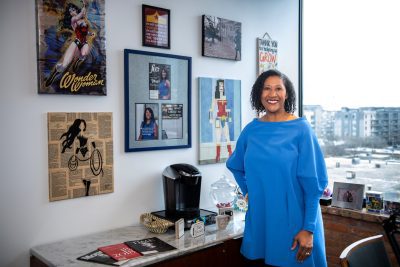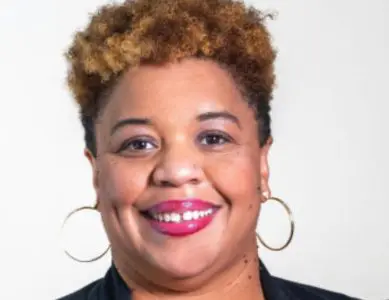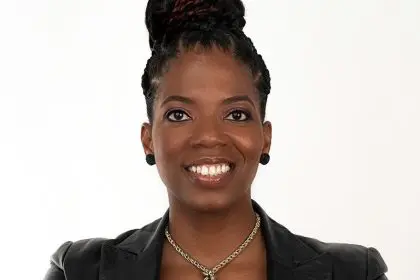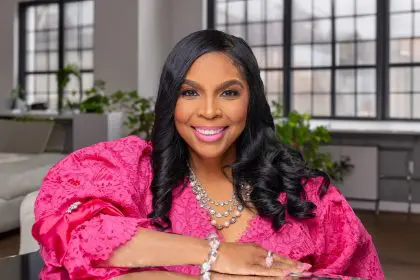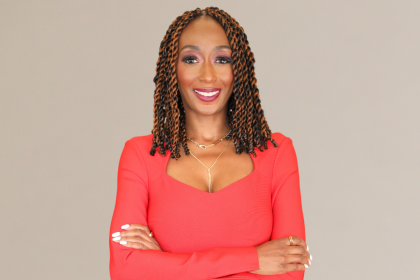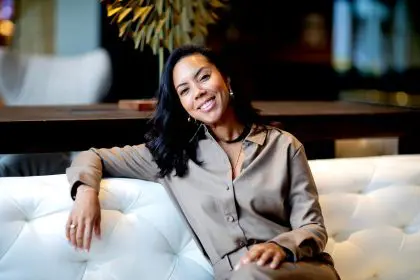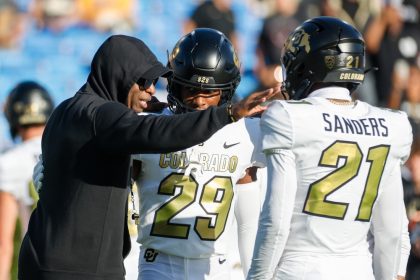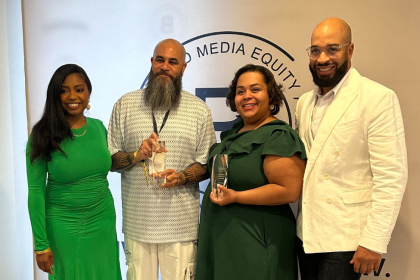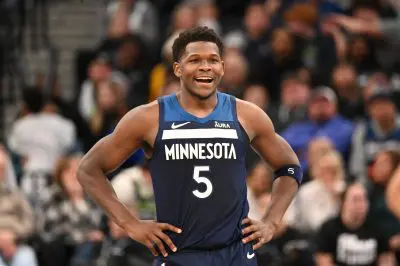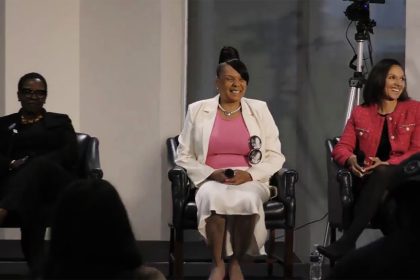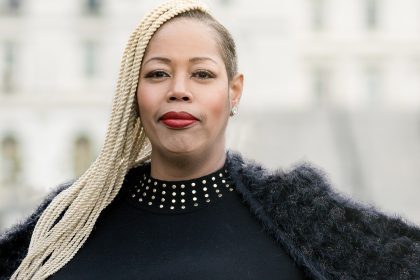Listening to Senator Laphonza Butler share her journey from a small Mississippi town to becoming California’s junior Senator is like receiving a masterclass in authentic leadership. Her story embodies the transformative power of human connection, strategic thinking, and unwavering commitment to opening doors for others. As someone who has worked alongside her and witnessed her rare gift of motivating teams and pushing people to think bigger, I can attest to her ability to make every moment count.
What do you consider your superpower in leadership?
My ability to pivot, underneath that is my God-given talent to connect with people. You can’t pivot and lead if you aren’t able to connect and bring people on the journey with you. One of the gifts that God really has blessed me with is that ability to connect, to engage authentically, to be pragmatic in my approach, but also to be able to connect, and we can go on a journey of change and pivot and difficulty and challenge together. To me, that is the way that we get to our final and ultimate destinations, our purposes in life is when we choose to do hard things.
What tools do you rely on for successful transitions in your career?
My trajectory has definitely not been a straight line, whether it’s growing up as a young black girl in a small town in Mississippi, never seeing myself being the second largest labor leader in the country or even a nation’s third United States Senator. Every stop in between really has been an opportunity to reimagine, to redefine and to lean on my gifts. The transitions in my career have truly been ones of leaning into that superpower, leaning into those gifts, but also knowing that it is not impossible, that every change that I had the tools to navigate, tools of communication and empathy, tools of connection and strategic thinking, tools of relationships and being able to call on those relationships, courage and grit. Being able to call on all of those tools at the right time and the right place, really has been able to strengthen my circuitous route to being our nation’s third black senator and a partner at Actum. To everyone who is thinking about the nonlinear path to achieving their dreams, just know that everything that you need you already have.
How did you manage the transition to becoming a U.S. Senator?
I literally became a United States Senator in 48 hours, I began my conversations with Governor Newsom on a late Saturday, I had Monday to transition my full team at Emily’s List, and by Tuesday morning I was sworn in as California’s junior United States Senator, and on that following Saturday the war in Israel broke out. Becoming a United States Senator, taking up the honor and following in the path of Senator Feinstein, but also Senator Kamala Harris, was an incredible responsibility. I had to shift in my mind from being an advocate on behalf of women who were running for office across the country and being a fundraiser to really looking at the totality of the sentiment of 40 million Californians and Americans. Whether it was issues of navigating the politics of the war or understanding the reauthorization of the Federal Aviation Act or dealing with the impeachment of the Secretary of Homeland Security, these were a series of things that I had to learn really fast, the takeaway for me is that there’s nothing I can’t do.
How do you navigate feelings of despair in challenging times?
I understand the power of that feeling, I genuinely do, and I can appreciate that folks are sort of wallowing in a sense of despair. Let’s not get distracted by our despair, as time and even the leadership of this administration may feel incredibly difficult for all of us, the expectation is that is distraction that we will check out or tune out to what actually is happening at all levels of government. We’ve got to make sure that we stay connected, stay in touch, stay aware and paying attention to the things that are happening all around us, even when we feel powerless. That awareness in and of itself is a tool to be used really in combination with when we get distracted by our despair, the tendency is to then isolate, to go into ourselves and sit in those feelings of sorrow, but if we choose to stay connected, we choose to continue to talk about the values of just being good neighbors, that kind of care and connection and humanity I think that are going to carry us through these difficult times of despair.
What’s your advice about negotiating from a position of power?
A mentor of mine gave me that piece of advice back in 2008, the context was me going to ask for something, a position that I wanted, but feeling like the immediate answer was going to be no, Mike said to me, “you have something that the other person needs, so just negotiate from a position of power, you may not get everything that you want, but know that it’s yours to have”. I’ve always carried that advice forward in every situation of leadership that I’ve been in, or every difficult moment, knowing that they’re something that I have that somebody else needs. It may not turn out exactly the way that I want it to, but knowing that I have something to offer has really always been the thing that brought me the greatest confidence. I do offer that bit of advice to a lot of young women that I come in contact with, because so often we go into situations believing that we are less than, believing that we’re not qualified, believing that we don’t have all of the experience, and the reality is, we have a gift, each of us do, and that’s our power.
How do you view mentorship and its importance for young leaders?
As I was just talking about the advice of a mentor of mine, and there have been many throughout my career, I think about the impact that their guidance, their advice, their correction, has really offered me along my path. I think about so many young people that I’ve come into contact with, whether at Emily’s List or in the Union that I led, or even young Californians, it’s so often they don’t expect leaders to take the time to engage them or get to know them, be committed to hearing their voice and their opinions. It has been very important to me to be grounded in the voices of tomorrow, because ultimately that’s what we’re leading for. We can be better, can be brighter, can be more fair, can be more just, I think of it as a tool to really think about how I am using my time today, how I am making every moment that I have in this moment count for them to be able to achieve their dreams when it’s their turn.
What do you hope your legacy will be?
In every position of leadership, as I have had the opportunity to reflect, when I vacated that position there was usually a woman, most often a woman of color, who was ready to take on leadership as I departed. I think about that and what it has meant to me to be able to look back on my journey and know that I truly have created opportunity for others who may not have gotten an opportunity. As I have most often thought about legacy in the context of my own daughter, I’ve had the opportunity to appreciate legacy in the context of America’s daughters, what have I been able to do on their behalf? What doors have I been able to open? What have I been able to make more possible because of my presence? How many more of America’s young girls have I lifted up all while caring for her sons? And it truly has been a real blessing. These last few months from leaving the Senate, being able to look over my life, and only to be 45, to have made such a meaningful contribution, been a blessing. I truly am excited about what more life has in front of me, because I know that there’s so much more that I have to give.
What is your self-care regimen to stay focused on hope?
For me, there’s really three things, and I’ve gotten better at them over time, and by better, I mean more consistent, journaling, exercise and prayer. All three of them, in their own way, give me the space to be able to reflect, to refocus, and to rejuvenate, and those have become truly daily practices for me, because when there’s so much we feel like coming at us, if we don’t have the space to do those three things each day, we could easily become overwhelmed and distracted and isolated. For me, it has been those three things, and I have not been as consistent, but they really have become a consistent practice for me, and it’s not about being perfect at it. It’s just about knowing what I need when I need it, and being able to call upon it and exercise those practices to give me the ability to get refocused on hope and what’s possible.

